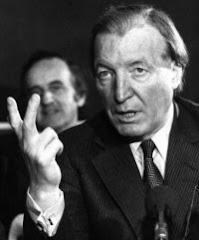It's the incident that's got the nation talking. And talking. And talking. It's gotten to the stage now where if I hear another word about Thierry Henry I'm going to slap the offender across the face. Twice. Because if I'm going to lose my cool, I'm not going to lose my sense of irony.
The nation is apoplectic with rage about "Le Cheat". Within minutes of the final whistle on Wednesday I was receiving e-vites to newly created Facebook groups demonising the former Gooner and calling for a replay - "We Hate Thierry Henry", "Thierry Henry should apologise to Ireland", "Petition to replay the France vs. Ireland game".
Poor decisions by officials in football decide matches all the time. Even matches of a large magnitude are regularly marred by odd refereeing. Think back to the Champions League semi between Chelsea and Barcelona last season, where the referee's performance was, in Didier Drogba's words, "a fucking disgrace". Due to FIFA's steadfast refusal to implement video evidence, this is nothing new. What is new is the idea of calling for a replay to right the wrongs. This to me is embarrassing, and a real insight into the Irish mindset.
Despite his obvious lack of credibility these days, Roy Keane put it best when asked to comment on the game. He said that Ireland "didn't have the mental strength to take the next step. Usual story." This is the truth. During normal time, Ireland had ample opportunities to put the ailing French side to the sword but didn't take them. Apart from the goal, we had at least two clear-cut chances that went astray. This is why we are not going to the World Cup. Extra-time should not have been necessary. Unfortunately it was, and unfortunately a fatal handball was not spotted by the inept linesman, but the fact remains - we had our chance and we blew it.
Irish people don't think like that - at least the majority don't. The concept of personal responsibility, of accepting blame, collectively or individually, is foreign to us. If we can blame someone else for our woes, we will. Enter Thierry Henry.
The parallels with the way in which this nation has dealt with the crisis in our public finances are many. Two days from now, 300,000 public sector workers are downing tools for 24 hours in protest at the proposed cuts to their pay and allowances in next month's Budget. The position of the unions is that the Government is punishing people who had "no hand, act or part in the current crisis". This, of course, is nonsense.
Public sector workers have been milking it for years off the back of social partnership and the benchmarking process, a process that Senator Joe O'Toole (then of the INTO) once called "an ATM for his members". As a result of the Ahern administration policy of keep sectoral interest groups happy, public sector pay has doubled since 2001. Public sector unions and their members had no problem with putting their cards into this "ATM", citing hikes in the cost of living as justification. Yet now as the cost of living is falling (by 6.6% year on year), they are noticeably silent on the topic of inflation.
They would rather blame the bankers and developers, and this goes for private sector workers and the unemployed too. Everywhere you go, if the topic of politics comes up, you will hear someone give out about one of those camps. Yet when the bankers were giving easy money to people hand over fist, they were not complaining. When the developers were creating thousands of jobs, they were not complaining.
It is easy to look to shift blame and demonise after the fact. But with a couple of notable exceptions, we were all complicit in the Celtic Tiger mirage. To suggest that it might be time for the Irish people to accept responsibility and work together to build a sustainable economy is pointless - the blame game is one on which the final whistle is never going to blow.
Sunday, November 22, 2009
Subscribe to:
Post Comments (Atom)

No comments:
Post a Comment